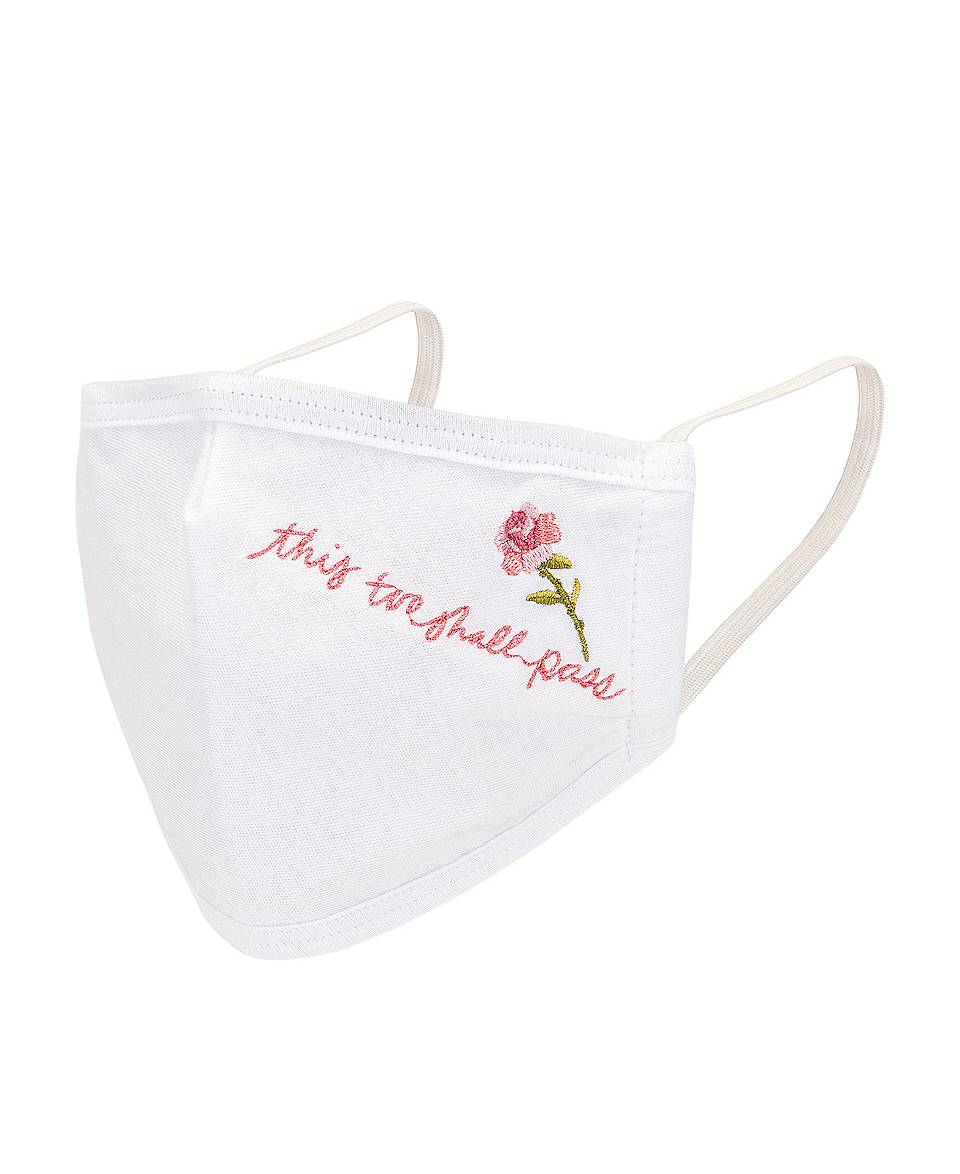22 Awkward Social Situations You Might Experience During COVID-19 How to Deal

After months of stay-at-home orders, many places are reopening now, and more people are venturing outside. Depending on your state, county, and city, you might be able to dine out at restaurants, order drinks at a bar, get your hair cut, and even go to a theme park in a few weeks.
This reopening and loosening of restrictions can cause a lot of conflicting feelings. You could be firmly on the excited side, happy to visit your favorite neighborhood spots and see friends again. Or you could be in the anxious camp, unsure that these reopenings are wise and still worried about health and safety conditions at those favorite neighborhood spots. Or you could waffle between the two sides, depending on the day, what news you've read, and your desire to both see your friends and family but also keep them safe.

It's okay to have those feelings. We are still dealing with a lot of unknowns out there. But what's known is that COVID-19 is still very much present in our world, and it's not going away anytime soon. Vaccines and promising new treatment methods still need to go through rigorous testing and trials before they're made available.
The threat is still there, even if we're able to move about more, and there's no way to 100% protect yourself against infection. The CDC says, "In general, the more closely you interact with others and the longer that interaction, the higher the risk of COVID-19 spread." So we've still got to follow the guidelines if we want to keep ourselves and others safe—that means continuing to practice social distancing and staying six feet away from others. You should also continue to wear a face mask in public settings, especially when you're indoors and can't exactly maintain social-distancing measures. And make sure you're washing or sanitizing your hands frequently, not touching your face, and monitoring symptoms and staying home if you feel sick.
Ultimately, it's on you to determine the risks, your comfort levels, and how to make sure you're doing your part to reduce the spread of the virus. It's important to understand what your own boundaries are first so that you can effectively let other people know. But I can pretty much guarantee that there will be some awkward or uncomfortable social situations in your future. You might have friends or family members who want to see you, but you're nervous about potentially infecting them and vice versa. Or you could be at the store and someone is getting a little too close. And if you're single, you may want to go on a socially distanced date but are unsure about setting up guidelines.
To help, I asked therapists and an etiquette expert to weigh in on some common scenarios that you might find yourself in and what to do or say in those situations. See what they had to say below. But keep in mind that these are just suggestions and might not work in every case. Be aware of your surroundings and who you're dealing with, as things can escalate, sometimes to the point where there might be a heated confrontation. Try to keep your composure, and if you are feeling unsafe, walk away if you can or ask for help.
With Strangers

You're going to come across all sorts of people with different comfort levels and boundaries, especially when you're in public spaces like a grocery store, mall, restaurant, library, etc. Dealing with strangers is VERY different than dealing with friends, family, and acquaintances, and sometimes things can get heated or uncomfortable. Here are some tips to avoid any escalation:
What to Do When Someone Is Too Close and You Want to Ask Them to Take a Step Back: "Say it in a way where you are not pointing out that they have done something wrong and more that you want to make it a collaborative effort by using pronouns such as 'us' and 'we,'" suggests etiquette expert and author Myka Meier, founder of Beaumont Etiquette. "I wish it were different, but let's make sure we keep enough space between us so we all stay healthy!"
Talkspace therapist Rachel O'Neill, Ph.D., LPCC-S, says you can also be more straightforward with your approach by saying, "I'm feeling uncomfortable, and I would like it if you could take a step back."
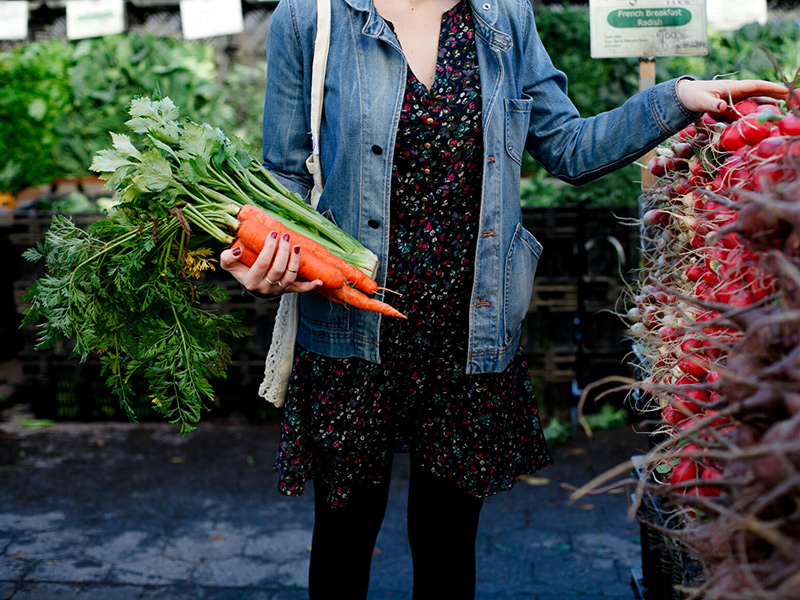
What to Do or Say When Someone Asks You to Take a Step Back: "I would recommend that you say or gesture something to signify that you understand and will comply," says Sage Grazer, LCSW, chief clinical officer at Frame. "You don't really need to say anything unless taking a step back is not a safe option for you."
If you do want to say something, O'Neill suggests going with a simple phrase like, "Sure, it's no problem to do so, and I appreciate you asking."
How to React When Someone Isn't Wearing a Mask: You'll want to tread carefully here, as we've seen from some news stories that this can get heated and sometimes violent. "For me, this depends on the situation. Are you in a situation where it feels safe to ask a stranger to put on a mask or to respect your social-distancing desires?" O'Neill explains. "If so, then I would simply acknowledge that you would prefer they wear a mask and/or give you some extra space. However, if it feels unsafe to ask for this, then I think finding a way to remove yourself from the situation—or from the person, in particular, might be the better way to go."
Meier adds that if you are in a place where it's mandatory to wear a mask, you can physically move away from the person, and if you think it's necessary, talk to the business owner or person of authority in the space. Again, don't do anything rash, and think about your environment and if it's worth it to bring it up or just leave or move away.
Family Members

Even though they're your family members, you might still have some differences when it comes to following social-distancing guidelines. You could be very worried about your older parents getting sick, while your siblings want to come over all the time even though they've been seeing a lot of other people. Or you might be the one who is looking to create a "quarantine circle" with family members you don't live with. Take a look at these common situations you might come across:
What to Say to Your Parents Who Aren't Following Social-Distancing Rules but Might Be at Risk: "This is a particularly challenging issue because, at the end of the day, we don't have control over what our parents do," Grazer says. "I think the best you can do is explain how it makes you feel when they go out. For example, 'It makes me feel anxious when you go out to the store.' People also often say that they don't care if they themselves get sick, but you can emphasize that it's not only about them, and then you can share how it impacts you."
O'Neill gives another example: "Your safety is important to me, and I'm concerned that you're putting yourself at risk right now."
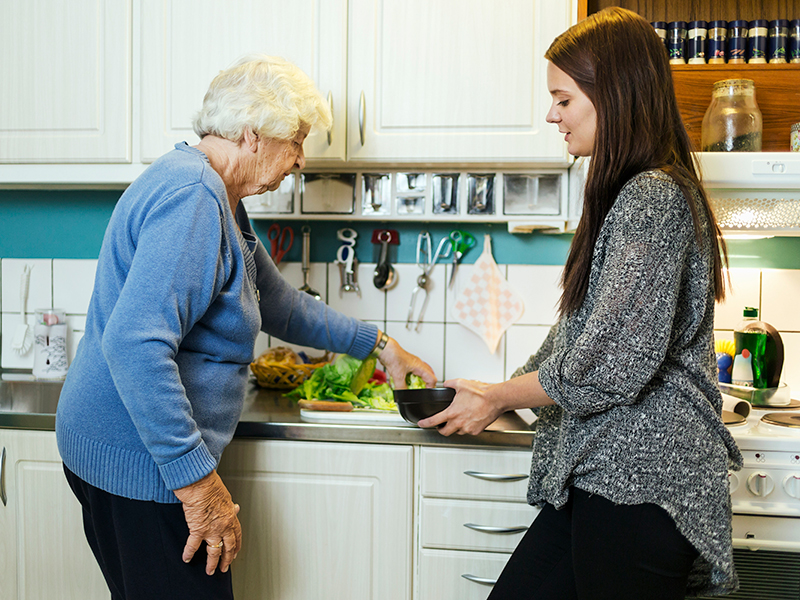
When Your Parents Want to Visit: First, consider your and their comfort levels. If you feel that you can be as safe as you can, then make sure they know what the guidelines are before they come over. O'Neill suggests saying, "I would love to visit with you. Here are the social-distancing measures that I've been taking and that I would ask you to follow during our visit."
If you're uncomfortable with them visiting and vice versa, you can decline in a polite way that's still loving. "Instead of just saying you can't or don't want to get together, give a caring explanation so they know the reasoning behind your decision: 'Mom and Dad, I love you so much that I wouldn't ever want to risk your health. Let's stick to online hellos until it's safe to see you in person again,'" Meier says.
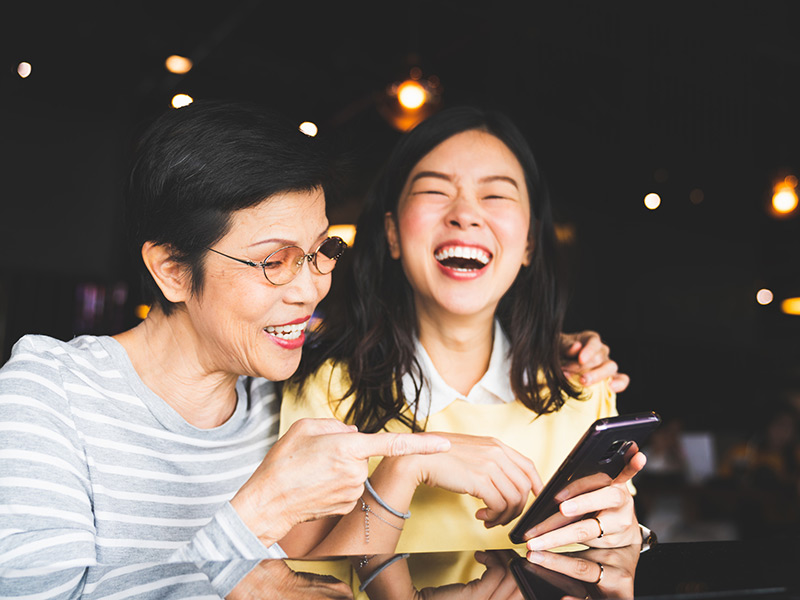
What to Say to Other Family Members Who Want to Visit: If you are going to have family over, again, it's important to set your boundaries first, which is easier said than done. "It can be really hard to set and enforce new boundaries with anyone, nonetheless family members," Grazer says. "One tip is to emphasize that your actions (maintaining distance) are not personalized to that specific person. For example, you can say, 'I don't feel comfortable when anyone comes within six feet of me.'"
"Be firm but loving in your approach and make sure to clearly communicate ahead of the gathering or someone coming over what your house rules are," Meier adds.
Friends

A lot of us haven't seen our friends in months. Yes, it's a privilege to be able to stay home, but it can feel lonely at times. I would guess that even an introvert misses hanging out with their friends. Again, this is a tricky thing to navigate as some friends might be all about getting the crew to go to a restaurant or bar; others might be okay with a socially distanced hangout at the park; and others might still be wary of seeing people outside of their household. Like all of these situations, it's important to just be mindful of your and others' feelings and perspectives.
What to Say When Your Friends Want to Hang Out: "Similar to dealing with your parents, you can't control your friends' behaviors, but you can set your own boundaries," Grazer says. "One option is to share your personal choices about your own social/physical distancing practices, and you can open the dialogue to better understand their choices." If you are able to communicate your preferences and learn about their own, you might come up with a compromise that allows you to meet up.
And remember to be honest, especially if you don't feel safe seeing others right now. "You don't want to come across like you are telling them what to do, but you can communicate your own wishes," Meier says. "For example, 'The party sounds so fun right now, but I'm being extra careful and going to sit this one out. Hope to come to another one soon!'"
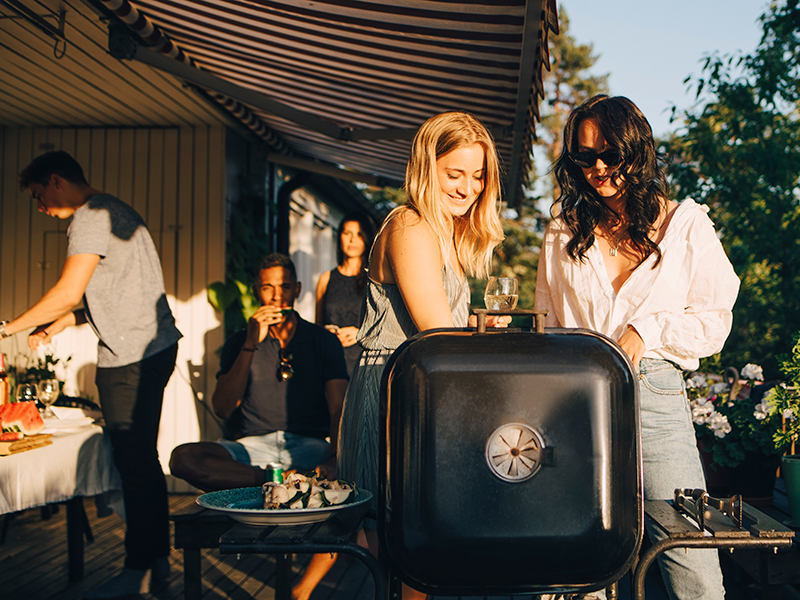
How to Turn Down a Social Engagement Without Seeming Judgy: There may come a time when you're going to get invited to something that you don't feel quite comfortable attending, and the host might take it personally that you don't want to come. "I believe that there are non-judgmental ways to convey your personal decisions about what you are comfortable with regarding your own health and body," Grazer says. "But also keep in mind that people are going to perceive you through their own lens, so no matter how delicately you phrase something, they may still feel judged or hurt. Making decisions based on attempts to avoid hurting someone's feelings does not reflect positive self-care. Putting yourself at risk or neglecting your own needs may lead to feelings of resentment or self-destructive behavioral patterns."
When declining an invitation, Meier says it's important not to make the person feel bad about their decision and address your situation and not theirs.
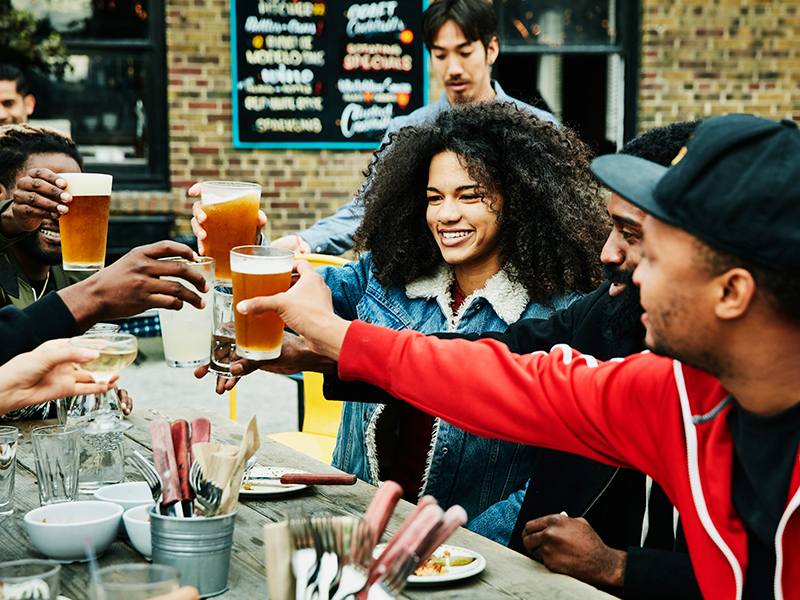
What to Do If You're at a Friend's House Who Has a Lot of Rules: In short, you've got to follow the host's wishes since you're in their home. You can help avoid any problems by talking things through before your visit. "In general, I think it's helpful to have open and clear communication with people before meeting up during this time," Grazer says. "If you have a conversation beforehand, you give each other the opportunity to set your boundaries and expectations before they get crossed. It's much harder to tell someone to back up once they've already come too close than it is to say in advance. Open the dialogue, ask them what they feel comfortable with in terms of physical distance and PPE/masks, and share your thoughts as well. That way, you can come to an understanding before anyone's feelings get hurt or boundaries get violated."

What to Do If You're at Someone's Gathering, and You're Uncomfortable With Another Guest's Actions: "I think the best thing to do is to politely remove yourself physically from the situation or group if you're not comfortable," Meier says. "If you are the host and you are uncomfortable in your own home due to a guest's actions, then politely address it to that person individually and not in front of the group."
O'Neill gives this script if you're the guest: "I'm feeling uncomfortable with the [guest's name] behavior [and you can include a bit about what in particular is causing the discomfort]. I understand you're in a tough position as the host, I can certainly take steps to maintain my own sense of comfort but just wanted to make you aware in the event one of those steps involves me making an early exit."
And here's her script if you're the host: "I've noticed you [insert the thing they are doing]. I'm uncomfortable with your behavior because [insert reason]. I appreciate you coming here to spend time with me, but I would request that you [do this thing instead]."
Kids
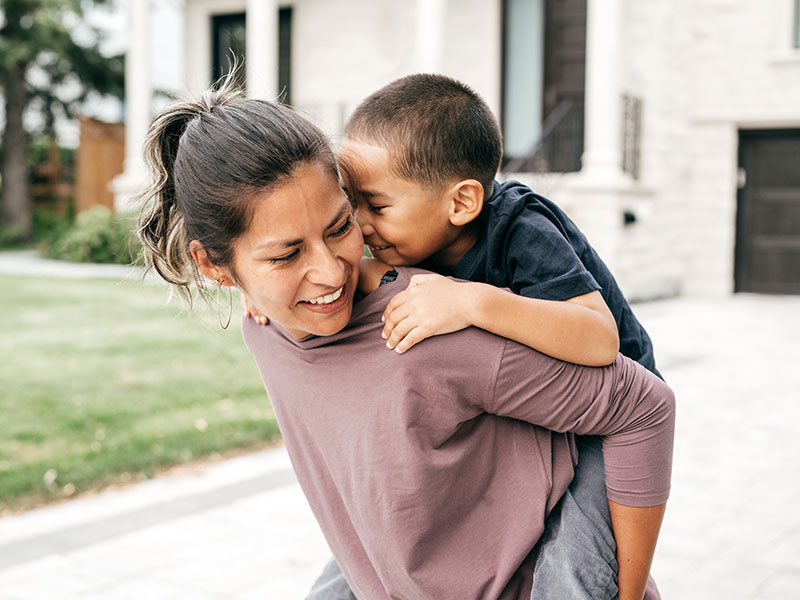
While the CDC says that the evidence suggests that children are not at a higher risk of contracting COVID-19 than adults, there are some kids who have gotten it, and even some who have died. If you have kids or are interacting with kids, you want to be as careful as you are with everything else.
What Should You Do If Your Child Is Asked on a Playdate: "This really comes down to your level of comfort with playdates and how those should look for your children," O'Neill explains. "Regardless, I think it's important to communicate to both the children and their parents about your expectations for social distancing." Meier says you should also explain to the children the "rules" of the playdate. For example, she suggests you can say, "To make sure we don't spread germs to our friends, we are going to make sure we eat and drink from our own plates and cups, and we won't be sharing snacks today."
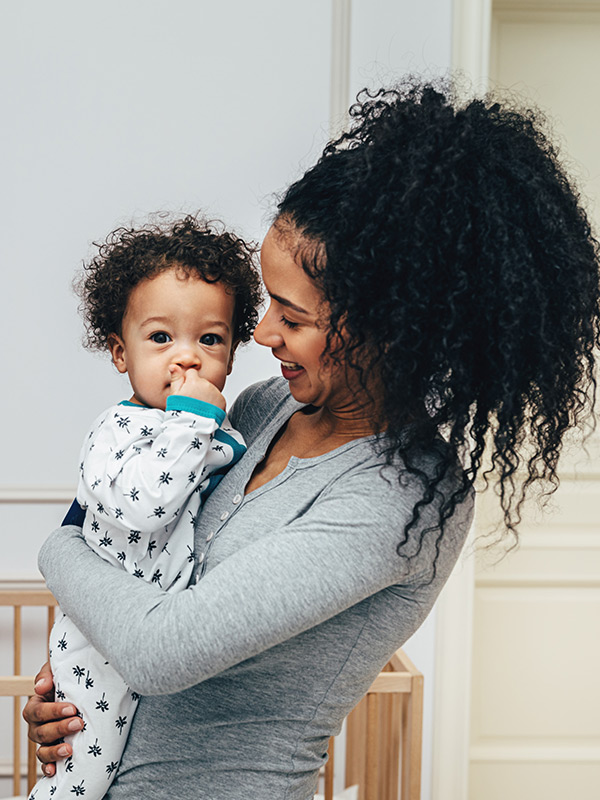
How to Talk to Your Older Children About Social Distancing: "Be as honest and forthcoming as possible about the reasons you're social distancing and how they will help avoid your family contracting the illness and/or making other folks sick," O'Neill says. "You can also reinforce to your children that these social-distancing guidelines are short-term and will not be in place forever."
What to Do If Your Older Children's Friends Aren't Social Distancing: Meier suggests setting ground rules with the parents ahead of any social event, whether your child is younger or older. And O'Neill adds, "Determine how comfortable you are with your children continuing to engage with those individuals and then talk with your children about what types of steps they may need to take to maintain their safety."
Romantic Partners
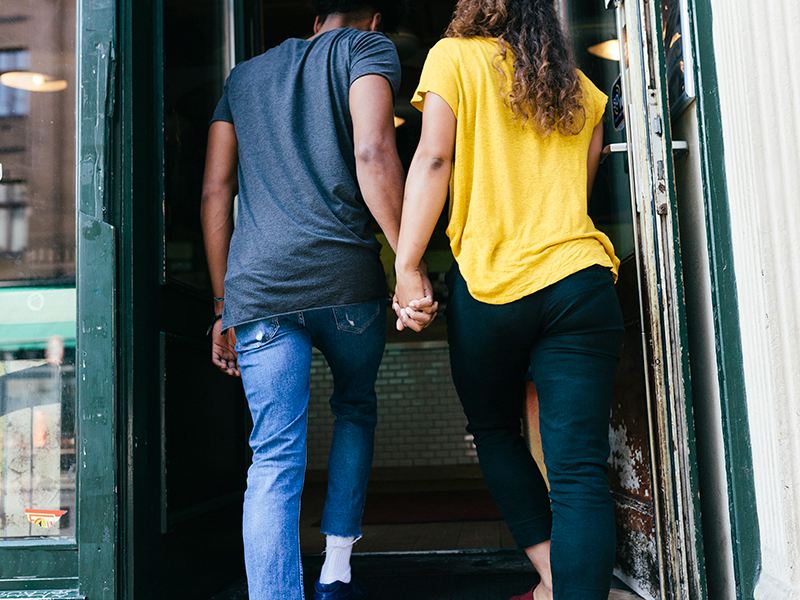
To put it not-so lightly, COVID-19 has really screwed with dating and relationships. If you're in a relationship, you might have run into some communication problems with your significant other, whether you're quarantining together or apart. If you're single and trying to date, you're probably sick and tired of virtual dates by now, and the temptation to meet someone in-person is so real.
What to Do When You're Going on a Date With Someone: There may come a time when you meet someone and you're both ready to meet in person. It's important to make sure you're on the same page when it comes to social distancing guidelines to avoid any weird moments. And first dates are always a bit awkward, so anything to lessen it is much appreciated, right?
"Have an open conversation with them before you meet up about what guidelines you are following and why it is important for you to follow things in that way," Nina Vasan, MD, MBA, chief medical officer of Real suggests. "If you are on a different page, discuss beforehand what your interactions can look like such that you are both comfortable and feel safe. Frequent and open communication is also important. When first meeting someone or in the early stages of dating, you can misread signals. Combine that with texting as the medium of choice, and the result is that a lot can get lost. Be extra communicative around anything physical, and let the other person know what your boundaries are at this time."
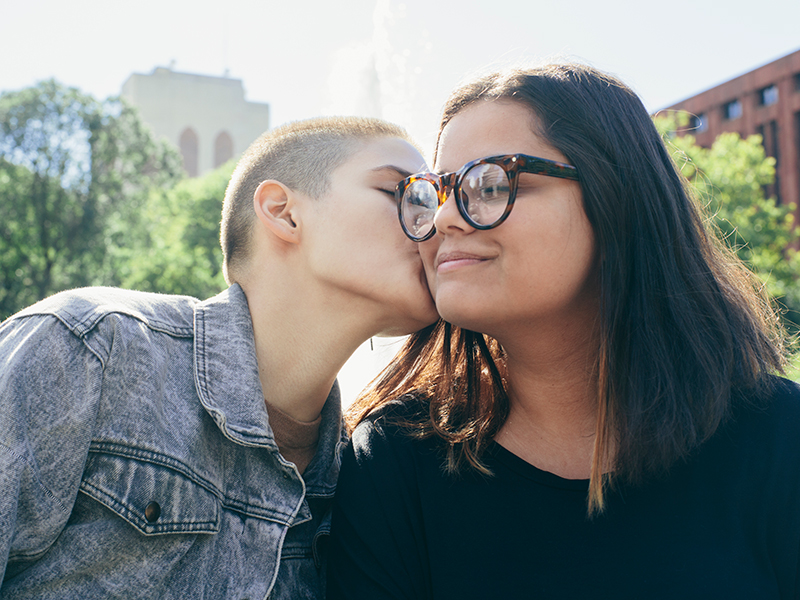
How to Set Up Logistics for a Date: "I think it's important to always err on the side of supporting the person who requests more social-distancing measures," O'Neill explains. "So if one person feels comfortable dining in a restaurant, but the other would prefer to eat outdoors and six feet away from others, then I think it's simply a good idea to support the person who requires the extra distancing."
What to Do If Your Date Pressures You to Not Socially Distance: This has got to be a red flag if it's making you feel uncomfortable. "How folks approach this situation is likely indicative how they will tend to approach others," O'Neill says. "If someone is pressuring you to do anything you're not comfortable doing, it's likely a good idea to determine the role you might want them to play in your life moving forward."
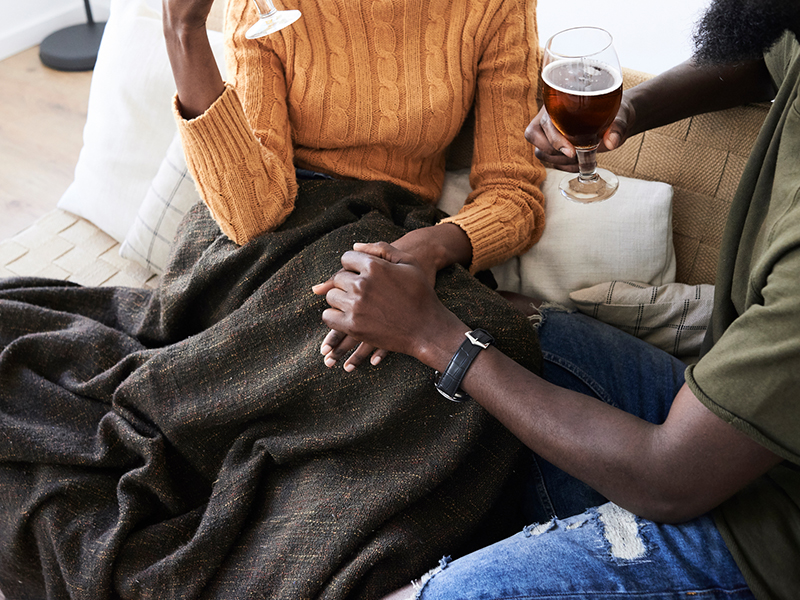
How to Make Sure You and Your Partner Are on the Same Page: For more established couples, you can still run into some issues now that things are reopening. One person might want to get out more, while the other feels more comfortable waiting a bit longer. "Talk about the situation and how you can collaboratively approach it," O'Neill says. "Discuss ways to make sure that each partner feels like their perspectives and voice is being heard."
What If Your Partner Isn't Following the Rules: "Try to communicate what you need and ask your partner to respect your safety wishes," O'Neill says.
What If You Feel Your Partner Is Being Overly Cautious: You might feel a bit frustrated with them, but it's important to respect their needs—you would probably want them to do the same for you. "You never want someone to do anything they are uncomfortable with," Meier says. "Be compassionate and give them time to adjust, as they likely are worried not only for themselves but for you."
Co-Workers

If you've been lucky enough to work from home for the past few months and are going to return to work, you might encounter some uncomfortable situations in the workplace, even if your company has plenty of rules and measures in place. Coming back from working by yourself every day to working with others can be a tough transition. Here's what to do if you come across some tricky scenarios:
What to Do If Your Colleague Isn't Respecting Social-Distancing Rules: "I would suggest having a conversation where you state your needs and ask them to take steps to respect them," O'Neill says. "If they don't respond favorably, then it might make sense to involve your supervisor at that point."

What If Your Colleagues Aren't Respecting Sanitation and Hygiene: This is serious, and you'll want to bring it up to management. "During this moment in time, taking steps to follow sanitation and hygiene guidelines is literally a matter of life or death for some," O'Neill says.
What If Your Boss Isn't Understanding or Respecting Your Feelings About Social Distancing: Try to explain it to them first, and if that doesn't work, you might want to reach out to your HR department or another person in your company. "I would consider if there's anyone else in the organization that you might be able to talk with about your concerns," O'Neill suggests. "If not, then I would consider how you can work to control your safety to the best of your ability in the situation and/or determine if you might want to begin to explore other workplace options."
Overall, for all of these scenarios, it's important to avoid knee-jerk reactions and think about the situation carefully before responding or acting. And keep in mind that everyone is getting used to this "new normal," so have patience for yourself and others.
Next up: How to Quit Those Unhealthy Bad Habits Once and for All
This article was published at an earlier date and has been updated.
This article is provided for informational purposes only and is not intended to be used in the place of advice of your physician or other medical professionals. You should always consult with your doctor or healthcare provider first with any health-related questions.
Sarah is lifestyle writer and editor with over 10 years of experience covering health and wellness, interior design, food, beauty, and tech. Born and raised in Los Angeles, she attended New York University and lived in New York for 12 years before returning to L.A. in 2019. In addition to her work atBest Knockoff Luxury Clothing , she held editor roles at Apartment Therapy, Real Simple, House Beautiful, Elle Decor, and The Bump (sister site of The Knot). She has a passion for health and wellness, but she especially loves writing about mental health. Her self-care routine consists of five things: a good workout, “me” time on the regular, an intriguing book/podcast/playlist to unwind after a long day, naps, and decorating her home.
